10,000-Person Survey on Japanese People’s Relationship with the OceanIs coronavirus the reason roughly half have not been to the sea during the past year?
Ahead of Japan’s Marine Day holiday, observed this year on July 18, The Nippon Foundation carried out an awareness survey regarding the ocean.
The survey was launched in 2017 as a fixed-point survey to be held every two years, to ascertain changes in people’s feelings and perceptions toward the ocean, as well as changes in social trends and circumstances, to provide information for planning future projects. (The 2021 survey was postponed to 2022 because of the coronavirus pandemic.) The 2022 survey raised concerns of a decline in people’s attachment to the ocean, with 45% of respondents (a 12 percentage-point increase from 2019) replying that they had not been to the ocean during the past year.
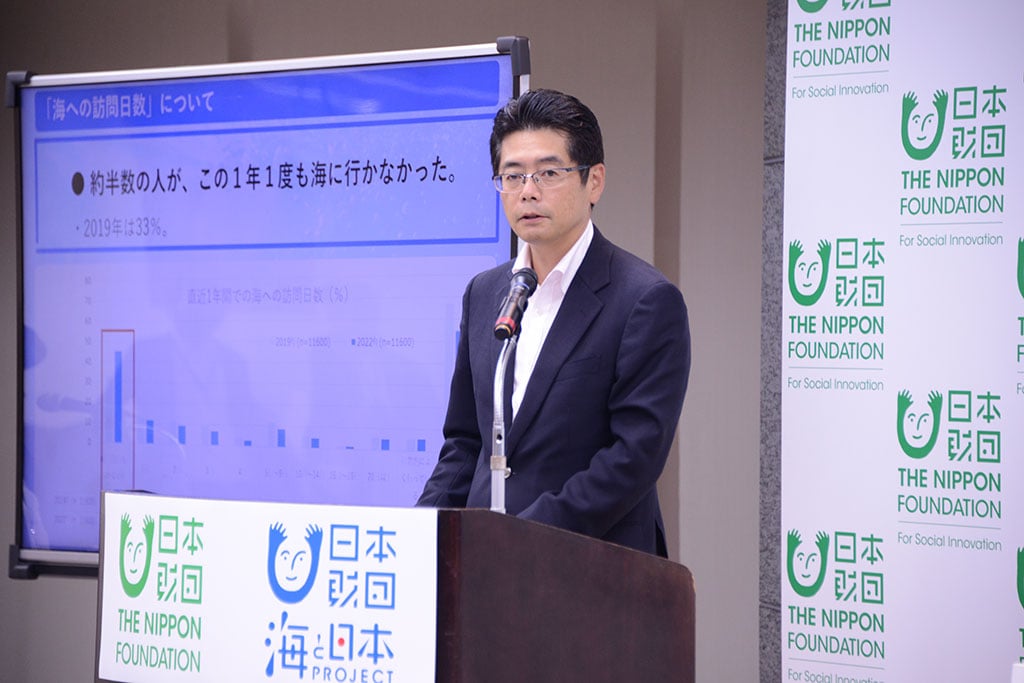
Opportunities to go to the ocean, awareness of the ocean
- One reason for fewer people going to the ocean is that compared with 2019 (before the coronavirus pandemic), people’s outdoor activity has declined by roughly 40%.
- As a result, people’s “affection” for the ocean, as shown in responses to questions like “I like the ocean” and “I feel close to the ocean,” declined.
- In addition, fewer respondents who had not been to the ocean during the past year “feel that the ocean is important” compared with those who had been to the ocean during the past year.
- On the other hand, no decline was seen in the number of people who “want to go to the ocean.”
Childhood ocean experiences
- Roughly 70% of respondents replied that “childhood ocean experiences are important.”
Nevertheless, roughly 80% replied that they are “unable to give their children sufficient ocean experiences.”
Awareness of ocean issues and activities to protect the ocean
- Compared with 2019, awareness of ocean issues rose overall, and the number of people engaged in activities tied to protecting the ocean increased. Awareness of these activities was also higher among people who had been to the ocean.
A new survey item, “Interest in the Umi-to-Nippon Project,” was added to the 2022 survey. The following points relate to that item.
- Roughly 40% of respondents “are interested in” the Umi-to-Nippon Project.
Interest was highest, at 45%, in the offshore wind generation project. - Interest in the Umi-to-Nippon Project was relatively higher among respondents under the age of 20.
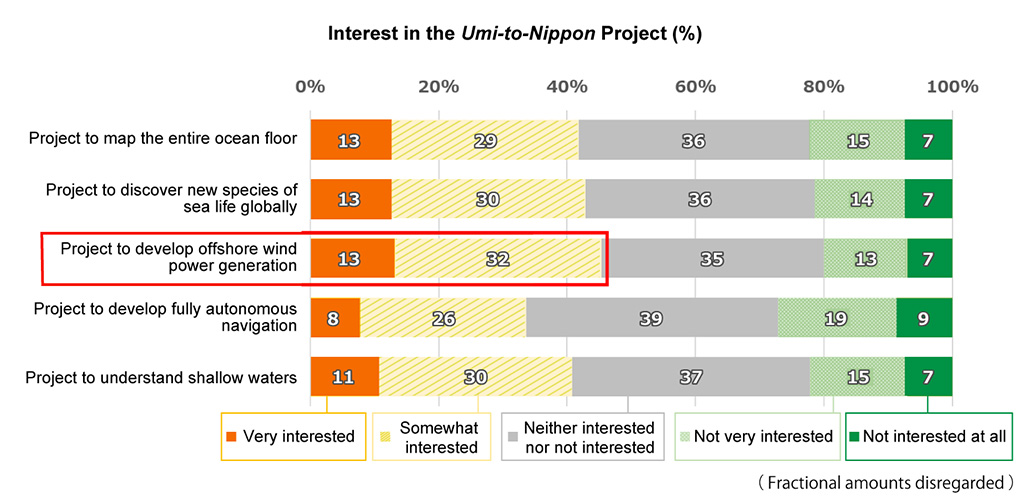
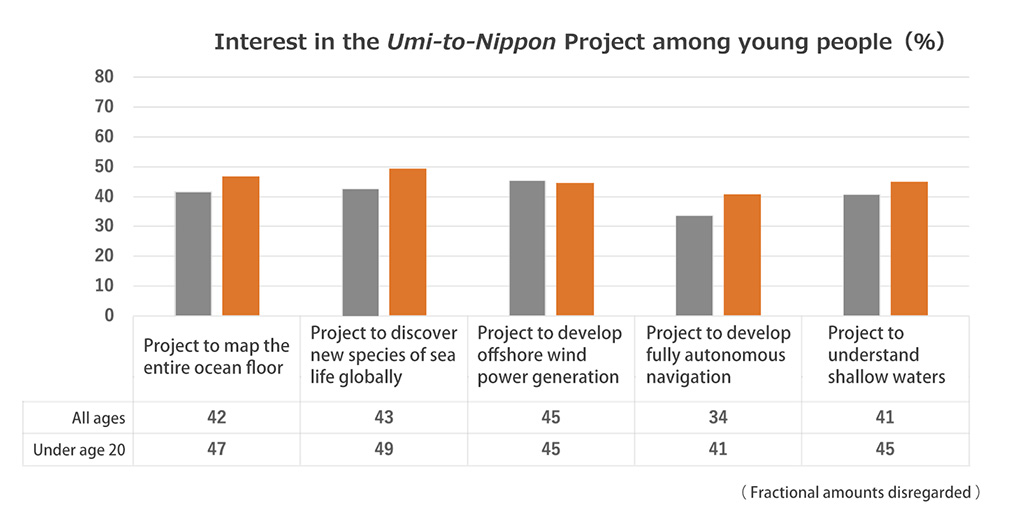
Speakers’ comments
Yohei Sasakawa, Chairman, The Nippon Foundation
Japan is a maritime country that has a close relationship with the ocean, as shown by the enactment of the Basic Act on Ocean Policy and being the only country to observe a Marine Day public holiday. This is why I believe it is very important to survey the degree to which the young people who are our future are interested in the ocean. I hope that by widely distributing the results of this survey, young people in Japan, a country surrounded by ocean, will feel affection toward the ocean and understand the role that the bounty of the ocean plays in their daily lives. I also hope that this will spur a deeper interest in the ocean among all Japanese people.
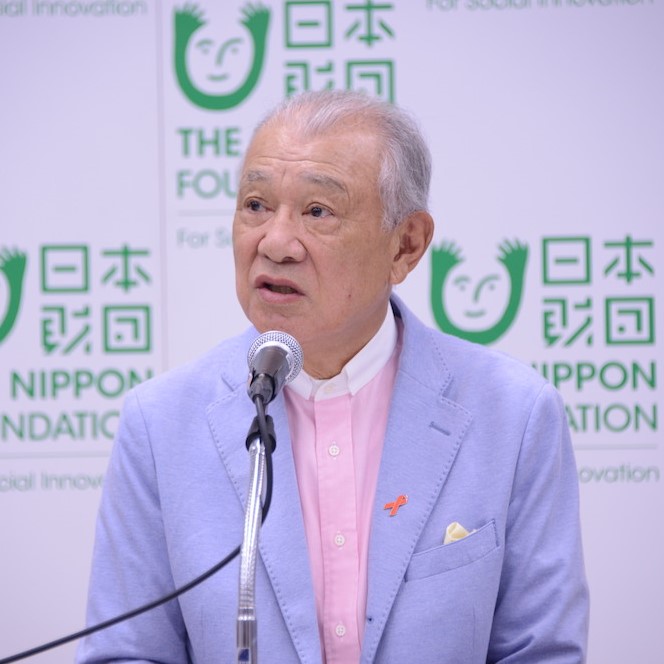
Mitsuyuki Unno, Executive Director, The Nippon Foundation
The coronavirus pandemic has meant a loss of opportunities for many people, including children, to experience the ocean. This survey has shown a link between the frequency of visits to the ocean and the level of attachment to the ocean, so we will continue to work with local governments and companies in various regions to create opportunities to visit the ocean and strengthen the dissemination of information.
We will also work to create high-quality content for children to learn about ocean issues, and given the fact that the pandemic appears set to continue for some time, we will work to create new relationships with the ocean using digital content and video, so that people can feel closer to the ocean from wherever they are.
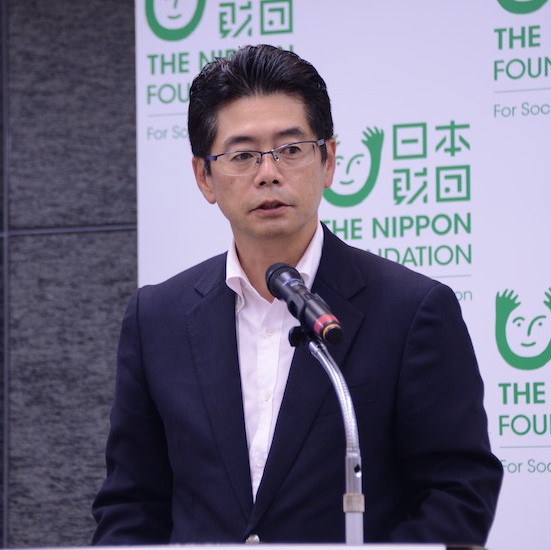
Takeaways
- Given the correlation between frequency of trips to the ocean and degree of attachment to the ocean, information should be disseminated and content created in coordination with local governments, media, and communities to promote opportunities to go to the ocean.
- With growing interest in environmental issues, activities tied to protecting the ocean and awareness of ocean issues are also increasing. In terms of education, quality content and venues should be provided to provide children with opportunities to learn about the ocean.
- Given the likelihood that the coronavirus pandemic will not end anytime soon, new relationships with the ocean that enable people to feel and think about the ocean without going there, including aquariums, video, and digital content, should be considered.
Survey details
| Respondents | Men and women aged 15 to 69 from all prefectures in Japan (valid responses: 5,800 men; 5,800 women) By age: 15-19 – 2,200; 20-69 – 9,400 |
|---|---|
| Period | June 10–15, 2022 |
| Method | Internet survey |
[Reference] Survey Results (in Japanese only)
Contact
Public Relations Team
The Nippon Foundation
- Email: cc@ps.nippon-foundation.or.jp



